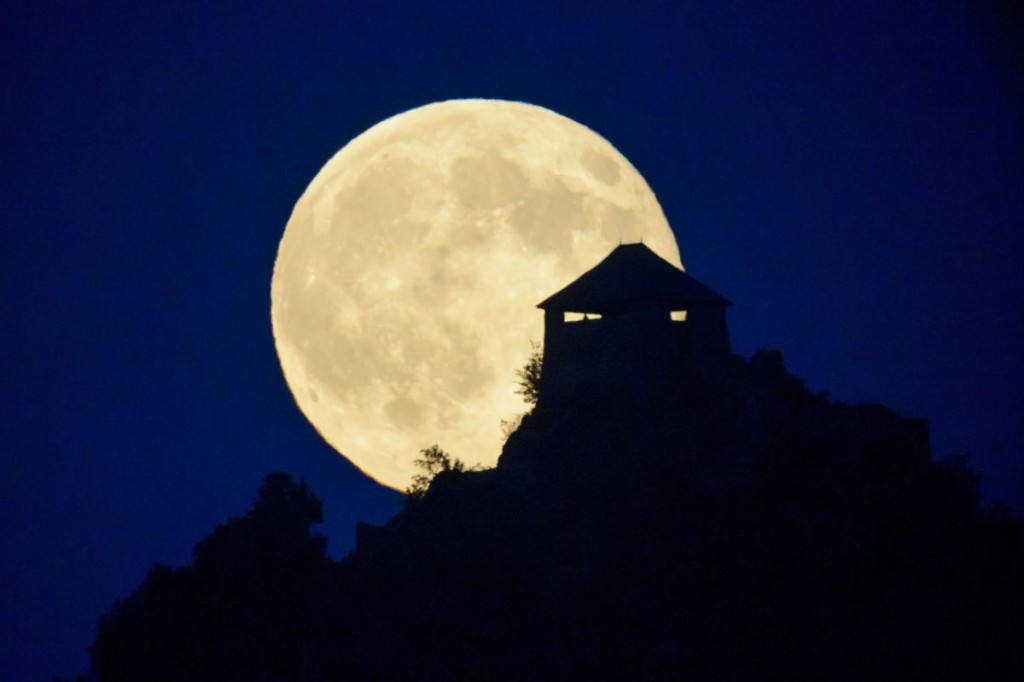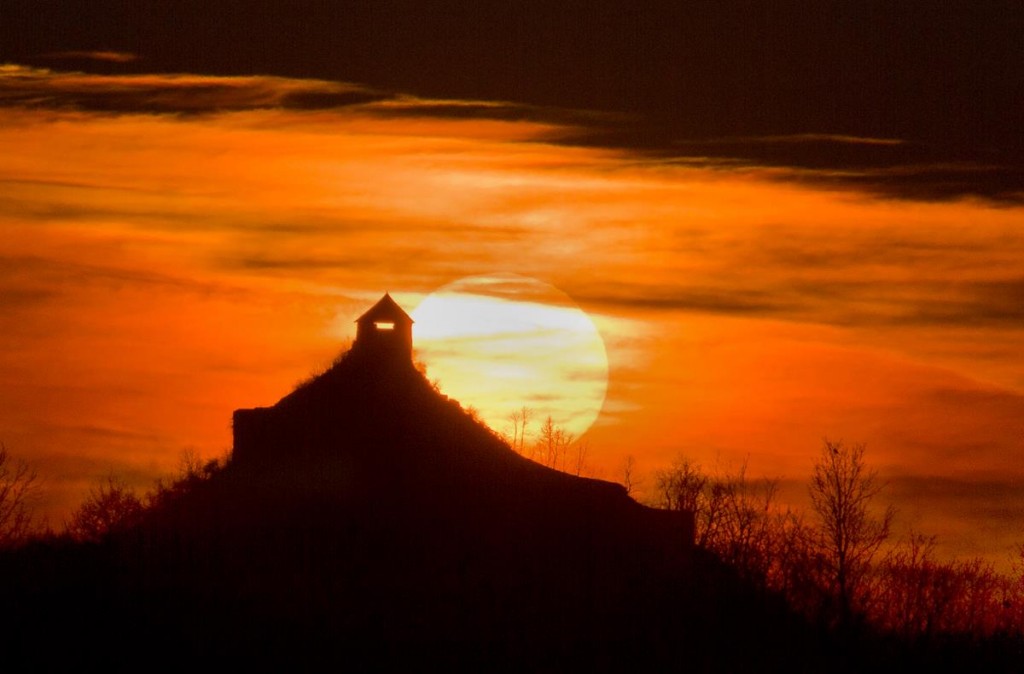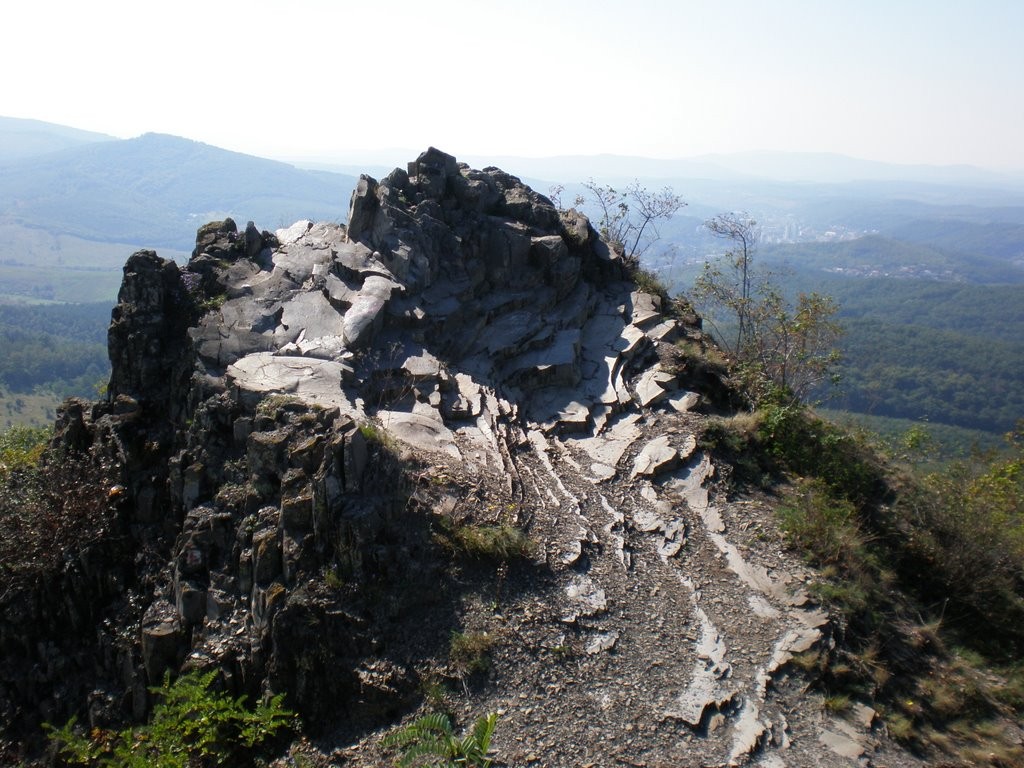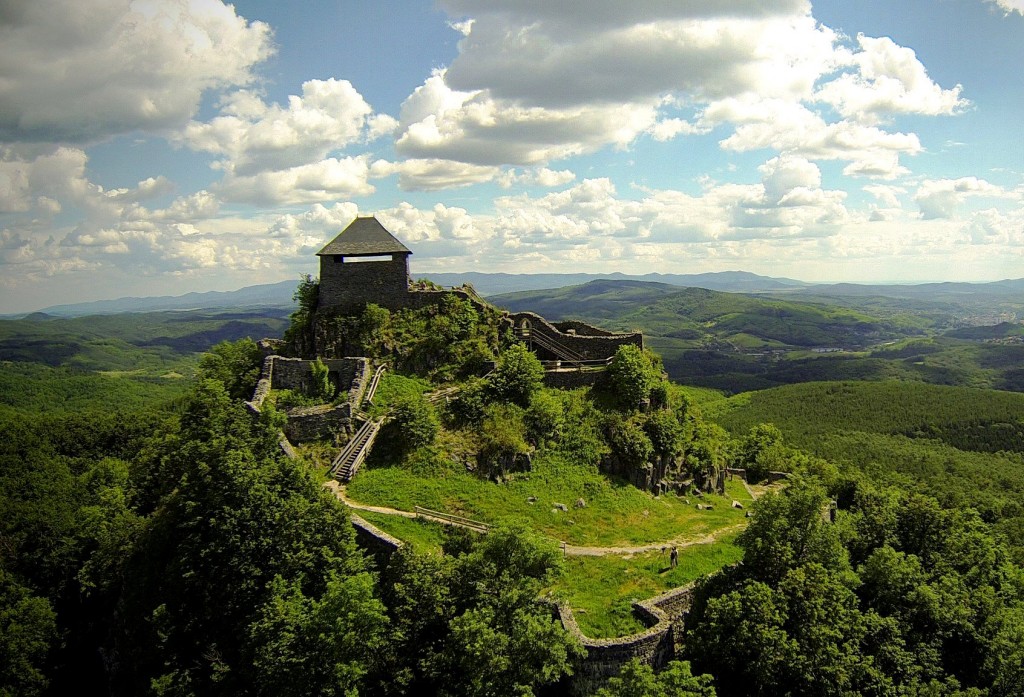- Castle of Salgó
- Witch Stone (Small Salgó)
- Statue of Ferenc Zenthe
- House of Geological Miracles Visitor Center Salgóbánya
- Well of Zagyva
„There may have not been a castle in Hungary so close to the stars like Salgó. Sitting on the top of its ruins for a long lime, my eyes were wandering through miles, so were doing my soul through centuries.”
Castle of Salgó, the protected monument that has served once as a former citadel lies on a 625 m high volcanic hill above Salgóbánya (part of Salgótarján).
Its name meaning brilliant, luminous is explained the most pictorial way in the above citation of Sándor Petőfi’s poem Salgó. The poet visited the ruins of the castle on 11th June 1848, where he became inspired to write the mentioned poem. The marble slab seen on the basalt rock above the former gate of the castle commemorate this.
From the top of the castle we may take pleasure in a breathtaking panorama: besides the ranges of nearby mountains Karancs, Cserhát, Mátra and Bükk, in clean weather even the snowy peaks of the High-Tatras can be seen by naked eye.
Descending from the castle, after a short 10 minutes walk we may reach the 571 m high rock hill of Small Salgó, better known as Witch Stone, where we may enjoy the 360’ view of the surrounding mountains and high plateaus. The geological nature trail designed around the volcanic cone presents the crevice volcano’s diverse stone forms.
Ferenc Zenthe, our Nation’s Actor (better known as the Captain of Tenkes or Uncle Taki from his most famous movies) was born in Salgóbánya. He’s commemorated by a park named after him in the center of Salgóbánya, by a statue settled in the garden of the Forester’s House on the main (Vár) street, and also by Ferenc Zenthe memorial room in the House of Geological Miracles (former casino building of the mine).
The well of river Zagyva (flowing into river Tisza in Szolnok) may be found also in Salgóbánya, in the forest behind Hotel Medves.




